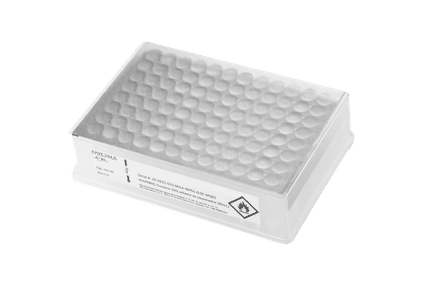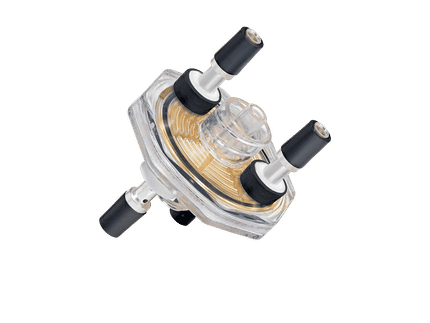To use all functions of this page, please activate cookies in your browser.
my.bionity.com
With an accout for my.bionity.com you can always see everything at a glance – and you can configure your own website and individual newsletter.
- My watch list
- My saved searches
- My saved topics
- My newsletter
Poppy tea
Poppy tea is a narcotic analgesic tea which is brewed from the dried parts of the Papaver somniferum plant. It has been consumed as long as the poppy has been cultivated for its psychoactive effects. Depictions both in Asian literature as well as in Western literature (such as in opium dens) abound. In some locales, preparation of tea may be preferred to opium as the latex of the plant (itself the primary component of opium) is illegal. Poppy tea contains two groups of alkaloids: phenanthrenes (including morphine and codeine) and benzylisoquinolines (including papaverine). Of these, morphine is the most prevalent comprising 8%-14% of the total. Its effects derive from the fact that it binds to and activates mu opioid receptors in the brain, spinal cord, stomach and intestine. Product highlight
PreparationTea may be prepared from either the seed pods or the seeds themselves. Dried poppy pods are first prepared such that they have a high surface area for efficient extraction to be possible. When reduced to small pieces, for example in a food blender, they form what is known as poppy straw. Poppy straw is steeped in hot but not boiling water, which has been slightly acidified. Commonly, vinegar or citric acid is used for the acidification. After steeping for a few minutes, the mixture is strained and the brown liquid is set aside for consumption. ConsumptionThe tea is drunk and its effects begin after about 30 minutes, lasting up to 8 hours. It is intensely bitter and the flavour may be improved by adding lemon juice, coffee, honey etc. Grapefruit juice may also inhibit liver enzyme activation, thus increasing the strength and duration of the opiate effects. For convenience of consumption, the tea can be evaporated over a very low heat to make a thick, concentrated liquid or a completely dry powder. Some users recommend putting this material into gel caps to allow for dosage to be measured more carefully. Although oral administration is the most common, dried poppy tea can also be snorted or smoked. However, many users report unpleasant side effects from these methods because of the non-active and potentially irritating substances, which are present in addition to the alkaloids. Dried poppy tea is not the same as opium, as the former is made from the whole plant, whilst the latter is made from exuded latex alone. Some users bypass the tea altogether and simply add poppy straw to a food such as yogurt. This method is fairly effective at masking the taste, but may lead to more gastric discomfort than consuming tea or dried tea. EffectsEffects vary widely depending on dosage (amount of poppy straw used, alkaloid content of poppies and the quality of extraction), on individual sensitivity and on any opiate tolerance which has built up. The effects are likened to oxycodone or codeine and can last for up to 8 hours. Poppy tea, like other opiates, is effective at dulling the sensation of pain. It can elicit in the user a feeling of calm, well-being and relaxation. Side effects and toleranceSide effects increase with dosage, and include sleepiness, mild stomach ache, lethargy, itching, slowed breathing and nausea. Nausea can be attributed to the presence of noscapine and is more common in first time or inexperienced users. At high doses, the side effects are dangerous and can cause death, typically through cessation of breathing or choking on vomit. As with any opiate frequent use may result in tolerance and dependence. Chemical dependency builds up after one to two weeks of daily usage. Frequent use followed by abrupt abstinence will give rise to withdrawal symptoms including leg and abdominal cramps, vomit, diarrhea, headache, insomnia, cravings and anxiety. Physical symptoms of withdrawal usually fade after 4-10 days but cravings and psychological dependence may continue for longer. OverdoseIt is relatively easy to overdose with poppy tea as the recreational dose is not greatly below the dose at which side effects become unpleasant or dangerous. Experienced users take a modest initial dose followed by small amounts over an extended period of time, in order to titrate up to the desired level. A case of fatal overdose in 2003 has been reported on a website authored by the victim's parents. The site alleges that a sample of poppy seed tea was sent for laboratory analysis. This victim is reported to have used 3.5lbs of poppy seeds in his tea preparation as on several previous occasions. The concentration of morphine in the tea was shown to be around 250 μg/ml and the amount of morphine which had been consumed by the individual was around 500 mg.[1] This is about five times the lethal oral dose for an individual without opiate tolerance.[2] ReferencesCategories: Medicinal plants | Opioids |
|||||
| This article is licensed under the GNU Free Documentation License. It uses material from the Wikipedia article "Poppy_tea". A list of authors is available in Wikipedia. |






